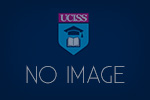
This program adopts a mixed approach to teaching/learning activities. These include lectures, problem-based learning, tutorials, practical sessions, independent learning, computer aided interactive learning, clinical skill sessions and clinical pharmacy training. The total duration of the Bachelor of Pharmacy Program is 4 years (8 semesters). In year 1, courses such as chemistry, histology, biochemistry, mathematics and statistics, physiology and pharmacology are offered to build a strong knowledge and facilitate the learning in the following years. In year 2 and 3, courses offered are systemic physiology, systemic pharmacology, pathology and therapeutics in integrated form besides other important courses in pharmacy such as pharmaceutical technology and hospital pharmacy. In year 4, a large part of the learning is carried out in wards, clinics, laboratories and pharmacies in which the students will practice clinical pharmacy under the supervision of clinical pharmacy lecturers and medical doctors.
Fulfill the General Requirements of the University and the Specific Requirements of the Programme.
| No. | Programme Code/ Programme Duration/ General Requirement |
Specific Requirement |
|
| Minimum CGPA |
Specific Requirement |
||
| 1. | Bachelor of Pharmacy PH210
Interview Programme Eight (8) Semesters The intake is once a year, in July. General Requirement
|
Candidates from the Diploma UiTM | |
| 3.80 | A Diploma Of Pharmacy or diploma in related field of science
AND Pass SPM or its equivalent with credits (Grade 4B) in the following subject:
AND MUET Band 3 |
||
| Candidates from the ASASI UiTM/PASUM/Matriculation | |||
| 3.50 |
Grade B (3.00) in two (2) following subject:
AND Grade C (2.00) in one (1) other subject. AND Pass SPM or its equivalent with at least Grade 4B in Mathematics/Additional Mathematics and credit in English AND MUET Band 3 |
||
| Candidates from STPM or its equivalent |
|||
| 3.50 | Grade B in the two (2) following subject:
Pass SPM or its equivalent with at least Grade 4B in Mathematics/Additional Mathematics/Mathematich July Paper and credit in English AND MUET Band 3 |
||
| Semester I Physicochemical Basis for Pharmacy Pharmacy Practice I Human Anatomy and Physiology Pharmaceutical Organic Chemistry I Economics English (College English) Islamic and Asian Civilisation Co-Curriculum |
Semester II Communication and Psychology Pharmacy Practice II Principles of Pharmacology Pharmaceutical Organic Chemistry II Pharmaceutical Biochemistry Fundamentals of Pharmaceutics I Information Technology in Business English (Reading & Critical Thinking) Co-Curriculum Drugs in Sport (elective) |
| Semester III Pharmaceutical Immunology Principles of Pathology Peripheral Nervous System and Pharmacotherapeutics Fundamentals of Pharmaceutics II Biostatistics and Calculus Pharmaceutical Microbiology Principles and Practice of Management English (Communication & Interpersonal Skills) Third Language Ethnic Relations Co-Curriculum Drugs of Abuse (elective) Pharmaceutical Industry Legislation (elective) |
Semester IV Pharmaceutical Analysis Drug Delivery System I Chemotherapeutic Drugs Endocrine, Reproductive Systems and Pharmacotherapeutics Principles and Practice of Marketing Third Language Traditional Medicine (elective) Principles of Biological Screening, Structure-Activity Relationships, Molecular Modelling (elective) |
| Semester V Drug Delivery System II Pharmacognosy Respiratory and Renal Systems and Pharmacotherapeutics CVS and Pharmacotherapeutics Pharmaceutical Bioengineering and Biotechnology Financial Management Third Language Introduction to Veterinary Pharmacy (elective) Major Therapeutic Classes of Drugs of Natural or Synthetic Origin (elective) |
Semester VI Autocoids, Anti-Inflammatory Agents, GIT System and Pharmacotherapeutics CNS and Pharmacotherapeutics Toxicology Hospital Pharmacy Pharmaceutical Industry Practice Pharmaceutical Care· Research I (Research Proposal) Concepts and Practice of Retailing Radiopharmacy (elective) Spectral Methods and Introduction to Structural Determination (elective) |
| Semester VII Applied Therapeutics in Cardiovascular and Pulmonary Disorders Applied Therapeutics in Infectious Diseases and Neoplastic Disorders Clinical Pharmacokinetics Pharmaceutical Material and Product Characterization Research II Introduction to International Business Reaction Mechanisms in Chemistry (elective) |
Semester VIII Pharmacoepidemiology and Social Pharmacy Applied Therapeutics in Gastrointestinal, Renal and Endocrine Disorders Applied Therapeutics in Hematopoietic, Neurology and Psychiatry Ethics and Forensic Pharmacy |
There is a great demand for pharmacy graduates in both the government and private sectors. Employment opportunities are available in the hospital, retail and community pharmacies, industrial pharmacy, business and commercial sectors, research institute, institutions of higher learning and enforcement pharmacy services.
Pharmacists in healthcare facilities dispense medications and advise the medical staff on the selection and effects of drugs. Some pharmacists specialize in specific drug therapy areas, such as therapeutic drug monitoring, intravenous nutrition support, oncology (cancer chemotherapy), nuclear pharmacy, geriatric pharmacy and psycho-pharmacotherapy (the treatment of mental disorders with drugs). Pharmacists in community and retail pharmacies counsel patient and answer questions regarding prescription drugs including questions of possible side effects of the interactions of various drugs.
Another area for a career in pharmacy is the pharmaceutical industry where the pharmacist manages and directs the manufacture of chemicals, prescription and non-prescription drugs and other health products. Pharmacists may also be involved in marketing, research and product development quality control, sales and administration.
Pharmacists with a postgraduate degree and/or training may pursue a career in teaching and research.
Masters of Science
Source : Universiti Teknologi MARA (UiTM)